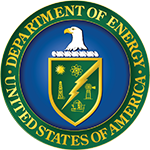Electric Energy Conservation Measure (ECM) Opportunities
This presentation covers decarbonization and electrification primarily using heat pumps to replace fossil fuel heating. It also describes the different types of heat pumps and the best applications for each type.
Fort Bragg Utility Energy Service Contract (UESC) Case Study
This case study discusses the development of a UESC which includes five ECMs and the approach taken with each measure. It includes lessons learned from water conservation measures and a unique approach to solar.
New Federal Energy Goals and Requirements: How Do they Impact your Energy Projects?
This portion reviews Energy Act 2020 and new executive orders, and shares available guidance and initial steps for agencies to consider. It also focuses on specific requirements relevant to performance contracts – implementation of life cycle cost effective measures within two years of an audit and what qualifies as an audit.
U.S. Department of Defense (DoD) Priorities, Policies, Best Practices and Other Updates
Representatives from Office of the Secretary of Defense, Army, Navy and Air Force provide updates regarding policies, priorities, and other updates.
Transacting for 24/7 Carbon-Free Energy
In December, President Biden signed Executive Order 14057 on catalyzing American clean energy industries and jobs through federal sustainability and a landmark Federal Sustainability Plan that includes a goal to purchase 100% carbon-free electricity for federal operations by 2030, with 50% of consumption being met on a 24/7 basis. In 2020, Google announced its industry-leading goal to achieve 24/7 carbon-free energy by 2030 everywhere it operates across the globe. Since then, it has been moving forward on creating new transaction structures, supporting innovative technologies, and building the ecosystem to enable many more electricity consumers to achieve the same goal.
This session provides an overview of Google's efforts in this area, with a particular focus on transaction methods and considerations, and provides ideas and lessons for federal energy procurement managers as they work over the next decade to implement the President's Federal Sustainability Plan.
Instructors
Otto Van Geet, Principal Engineer, National Renewable Energy Laboratory Read Bio
Otto Van Geet is a Principal Engineer at NREL. He has been involved in the design, construction, and operation of energy-efficient research facilities such as laboratories and data centers, office and general use facilities, and low-energy-use campus and communities. Van Geet was one of the founding members of the Labs21 (Smart Labs) program and his experience also includes renewables screening and assessment, PV system design for on- and off-grid applications, energy audits, and minimizing energy use. Van Geet has authored many technical reports and conference papers and been recognized with many awards from professional associations, including the 2007 Presidential Award for Leadership in Federal Energy Management and the 2011 GreenGov Green Innovation Presidential Award for the NREL Research Support Facility data center.
Audrey Oxendine, Chief, Energy and Utilities Branch, Fort Bragg, North Carolina Read Bio
Audrey Oxendine is the chief of energy and utilities at U.S. Army Garrison Fort Bragg. She graduated from North Carolina State University in 1994 with a degree in biological and agricultural engineering. Her career includes work in nutrient management planning for animal waste, design, and construction of water and wastewater systems, and environmental compliance. In her current position, she manages a budget of more than $100 million to pay utility bills, ensure utility maintenance, and to develop energy resilience and energy conservation projects.
Jennifer Shaltanis, Account Manager, Duke Energy Read Bio
Jennifer Shaltanis is the account manager for the Duke Energy Federal Team, overseeing more than $250 million in current contracts. The Federal Team uses a variety of contract vehicles and technical solutions to address a wide range of needs for the federal government. Jennifer began her career in the air pollution field, obtaining a Bachelor of Science degree in meteorology from NC State University and a doctorate in civil (environmental) engineering from Washington State University. In her 10 years as a state and federal government employee, she worked in air pollution modeling, engineering, and policy before migrating to energy/sustainability to take a more active role in addressing air pollution at its sources. Jennifer has been with Duke Energy since 2017 and is surrounded by some of the most talented engineers and professionals in the industry.
Schuyler Schell, Supervisor Project Procurement and Distribution Generation Services, Federal Energy Management Program (FEMP) Read Bio
Supervisor Project Procurement and Distributed Generation Services at the Federal Energy Management Program (FEMP), within the Energy Efficiency and Renewable Energy Office of the Department of Energy. FEMP assists federal agencies in their efforts to achieve high levels of energy and cost efficiency and resiliency in their facilities. Mr. Schell leads the FEMP Program relating to DOE’s Energy Savings Performance Contracts, Utility Energy Services Contracts, Distributed Energy Project and Procurement support, DOE Utility Contract Oversight, and other initiatives. Before coming to the DOE in 2001, Mr. Schell served in a variety of capacities at a leading housing finance Government Sponsored Enterprise. Earlier in his career, Mr. Schell was Vice President for Secondary Marketing and Product Development for a Dallas based Mortgage Company and was an economist and the Director of Government Agency Relations for a trade association in Washington. He has an undergraduate degree in Economics from the State University of New York at Albany, and a Master of Planning Degree from the School of Architecture at the University of Virginia.
Stetson Tchividjian, Director of Business Development, D3 Energy Read Bio
Stetson Tchividjian is the director of business development for D3Energy. D3Energy is a solar developer that exclusively focuses on floating solar. D3Energy is a market leader in floating solar, having built and developed the most amount of systems in the United States, including projects for the U.S. Army, Comcast, Duke Energy, Miami-Dade County and Florida Power and Light.
Jack Surash, Senior Official Performing the Duties of the Assistant Secretary of the Army (Installations, Energy and Environment), U.S. Army Read Bio
Mr. Jack Surash was selected to the Senior Executive Service in September 2005. Since January 20, 2021, he is serving as the senior official performing the duties of the Assistant Secretary of the Army (installations, energy and environment). In this role he serves as the primary advisor to the Secretary of the Army and the Chief of Staff of the Army on all matters related to Army installation policy and oversight, and coordination of energy security and management. In addition, he is responsible for policy and oversight of sustainability and environmental initiatives; resource management, including design, military construction, operations and maintenance; base realignment and closure; privatization of Army real estate portfolio and installations’ safety and occupational health programs. Mr. Surash was appointed as the Deputy Assistant Secretary of the Army for Energy and Sustainability in February 2021. He previously served as the Acting Deputy Assistant Secretary of the Army for Energy and Sustainability since September 2016. In this position he is responsible for overall program direction, establishment of policies, development and refinement of strategies, and oversight for implementation of all programs and initiatives related to energy security and sustainability within the Army. As the Army's Senior Energy Executive, Mr. Surash coordinates and integrates installation (traditional as well as expeditionary) and operational energy programs and strategies.
Learning Objectives
Upon completion of this course, attendees will be able to:
- Identify how heat pumps can help replace fossil fuel heating and the best applications for the different types of heat pumps;
- Identify how the agency, utility and energy service companies (ESCO) worked together on the very successful Fort Bragg UESC project;
- Recognize the new federal energy goals and requirements and how they impact energy projects;
- Recognize DoD's current policies and priorities related to energy goals and requirements; and
- Demonstrate an understanding of a private sector company's efforts to achieve 24/7 carbon-free energy, with a particular focus on transaction methods and considerations, and provide ideas and lessons for federal energy procurement managers as they work over the next decade to implement the President's Federal Sustainability Plan.








